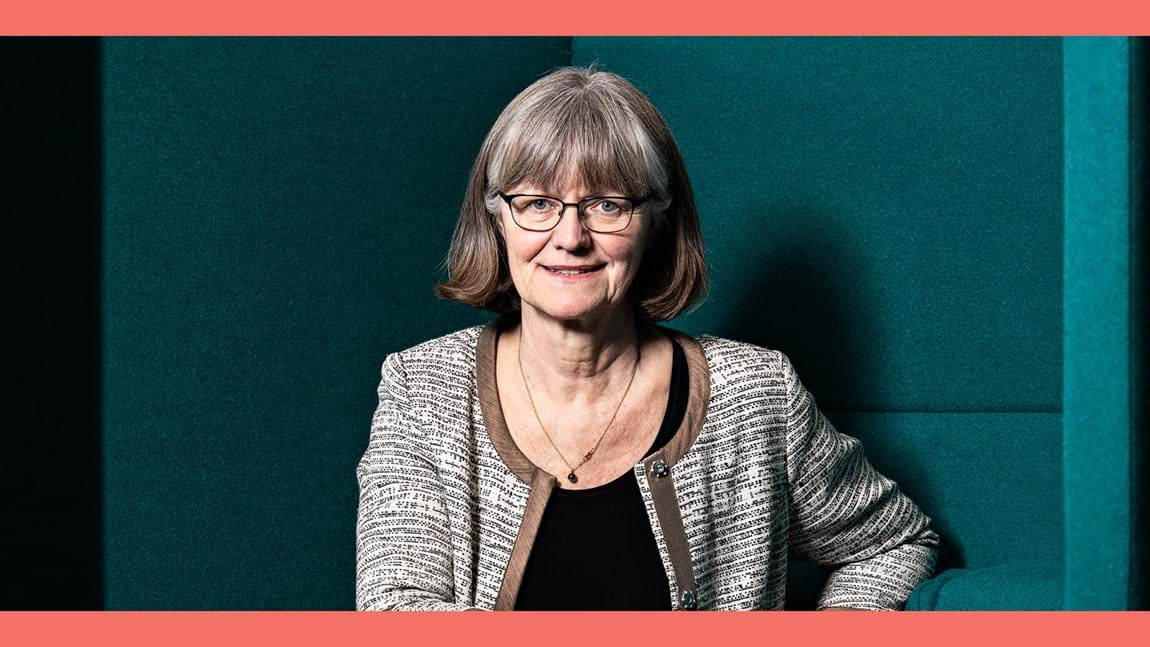Professor: Maternity leave hinders women’s careers in Denmark
Denmark has a ‘welfare state glass ceiling’ in the form of long parental leave for women. Professor Nina Smith urges politicians to consider earmarking parental leave for men. This could lead to more women in leadership positions.
Parental leave. You can almost hear the mental sigh when Professor of Economics Nina Smith, Aarhus University, says the word.
According to Nina Smith, parental leave is single most significant reason why the gender ratio in senior leadership positions at private companies is 1:10 in favour of men.
“Statistics show that every time parental leave has been extended since 1984, women have taken it,” she says.
The wealthier the society – the more gender stereotypical
Nina Smith points to new research published in Science Magazine last October showing that the wealthier a society grows, the more firmly cemented the traditional gender roles become.
“The role that women are expected to take on in connection with motherhood, for example, grows as a society develops economically. When we no longer have to fight to put food on the table, the traditional gender roles gain ground as ideals,” says the economics professor.
We have new research from Germany, showing that earmarking parental leave for men leads to a more positive attitude. Professor Nina Smith, Department of Economics, Aarhus University
She notes that while women - naturally - want to lead, they are forced to balance this desire with responsibilities on the home front. Additional challenges are the reduction of daycare opening hours and the increasing of official recommendations for breastfeeding age in step with the extension of parental leave.
“The welfare state inadvertently ends up promoting and financing the role of the housewife. And that is a problem if we want more women in leadership positions, because it is very difficult to become a senior manager in a reduced time or part-time position,” she says.
See also: Opinion: Three ways to get more women into leadership positions
Earmarked parental leave for men
The solution? Men taking more parental leave.
According to Nina Smith, men are almost forced not to take parental leave today.
“Economically, it is most advantageous for a family if the woman takes parental leave. Furthermore, if the man feels that he is punished professionally for taking parental leave, and the women wants to take it, there will be no change,” she says.
The political dilemma is that it will be difficult to take parental leave away from women. From a national economy perspective, the economics professor cannot recommend further extending parental leave when the labour force is already under pressure. Instead, she recommends that politicians consider earmarking part of the parental leave for men.
“If part of the parental leave is earmarked specifically for men, then it is no longer a personal choice when men take parental leave. Furthermore, we have new research from Germany, for example, showing that earmarking parental leave for men leads to a more positive attitude towards men taking parental leave and participating more in household work,” says Nina Smith.
See also: Senior management: Three women strengthen building materials giant
FACTS
Advice from DI: Remember parental leave, and share it
Children are wonderful. But children can impact your career opportunities if you’re out of the labour market for nine or more months.
If the employee who takes parental leave is also the one responsible for the majority of timebound housework such as picking up children from daycare, caring for them on sick days and perhaps working reduced hours, this absence will “haunt” the employee in terms of career opportunities in the future.
Today it is possible for parents to split parental leave. DI encourages parents to split parental leave more equally so that it does not hinder women’s careers.
DI also encourages companies to remind the parent who is not on parental leave of the option of taking it.
Since 2007 DI and our counterparts have agreed in the Industrial Collective Agreement that parts of the parental leave must be reserved for each parent.
FACTS
Nina Smith
- Professor at the Department of Economics, Aarhus University since 2009
- Board member of Carlsberg Foundation and Carlsberg A/S
- Chairman of the board of Foreningen Nykredit and the Nykredit Foundation
- Chairman of the board of the National Centre for Social Research and Analysis (VIVE)
- Married, 4 children, 7 grandchildren


